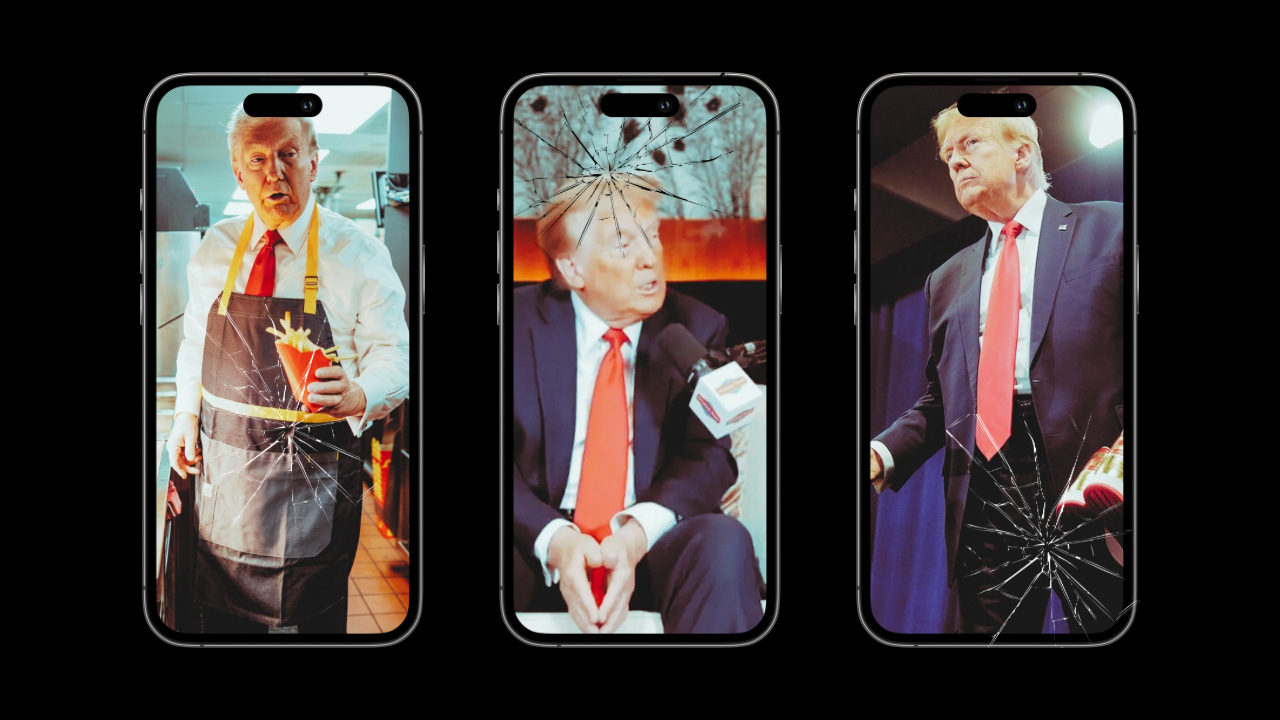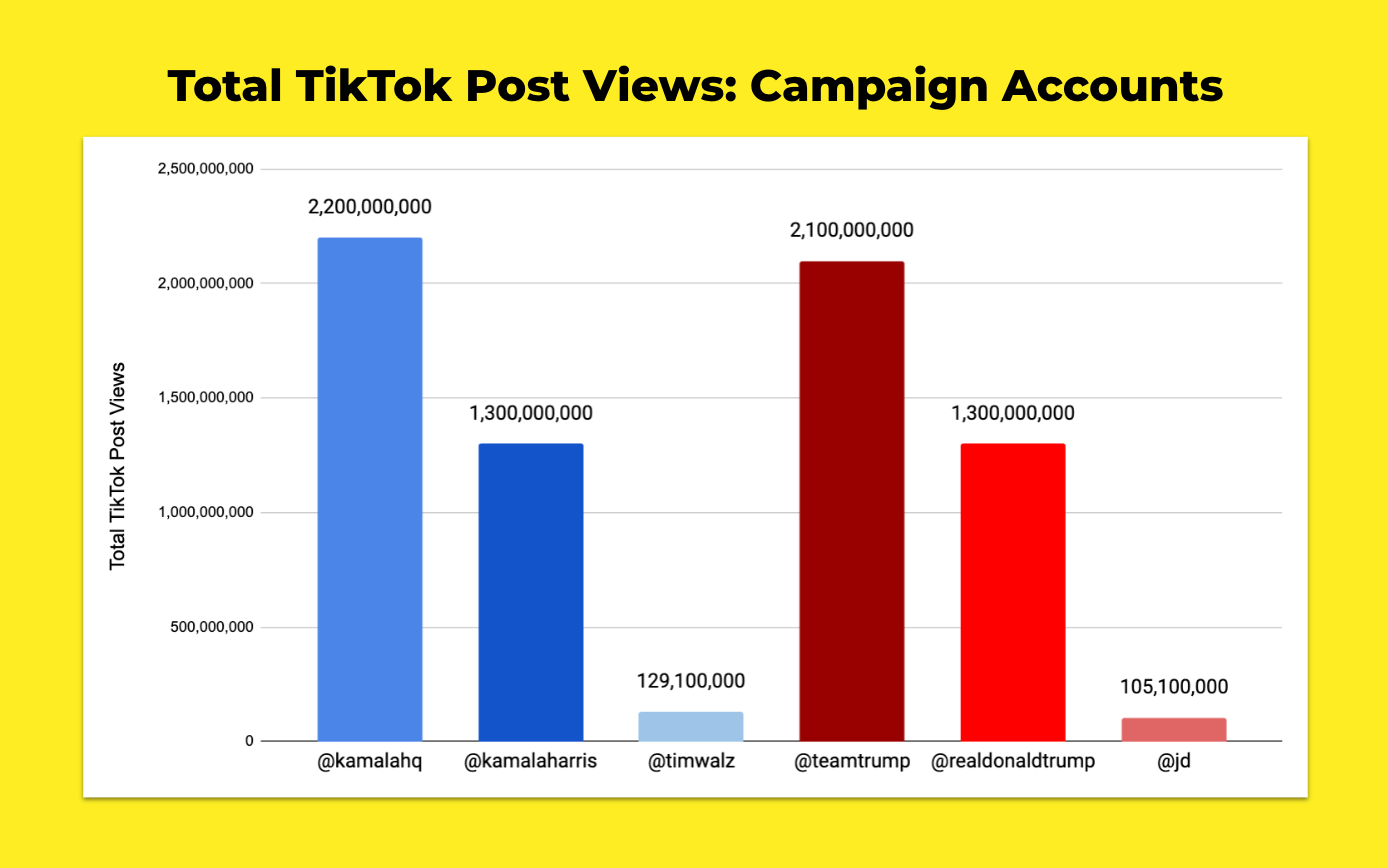How the internet shaped Trump's victory
Initial thoughts on a few things that the Trump campaign did right
When a presidential candidate wins, their campaign staff, strategy, and tactics are paraded in the political press as genius. For the winner, their ads must have been persuasive, their ground game must have been stronger, and their top-secret data and targeting operation had to have been unprecedented. Everything went exactly according to [insert genius strategist name]’s plan. Over the coming days and weeks, you’ll read plenty of stories explaining the genius of the Trump campaign and the failures of the Harris campaign. To the victor go the spoils.
The truth is a little more complicated.
Despite billions of dollars spent each cycle, specific campaign tactics can only make a difference at the margins and in key moments. In such a noisy information environment, it's difficult to say what, if any, tactics or strategies made the difference for Trump’s win. Politics isn’t science, and insidery persuasion ad testing can sometimes be just as useful as well, vibes.
This is a newsletter first and foremost that focuses on campaign tactics - particularly those of the online variety. Waking up on Wednesday morning, it was hard to see how any of this stuff that I’ve written about for the past several years really mattered. After all, the Harris campaign ran a tactically smart campaign online but lost in a pretty shocking fashion. Team Harris outraised, outspent, out-advertised, and (for the most part) out-posted Trump across the internet. Their senior staff understood the changing media environment and how social media platforms have evolved since 2020 - and they adapted their strategies accordingly.
Still, it wasn’t enough. For the slim majority of voters in the seven swing states who determined this election, the current vibes coming out of DC were bad, and they wanted something different. Voters’ overarching concerns about the administration, a relatively undefined candidate, and the economy trumped everything else.
That said, there were no doubt moments, messages, and tactics that had some influence on some of those voters’ perceptions of each candidate this year, online and off.
In terms of digital politics, we saw changing social platforms, a fractured media environment, and innovative new outreach strategies define the year. Was it the TikTok election? Was it the podcast election? Was it the Elon Musk election? Was it the influencer election? The answer is probably yes to all of the above.
Sitting down for long-form podcast interviews
For starters, I think the Trump campaign’s embrace of long-form podcast interviews (he had done more than 20 of them) was a stroke of genius that helped humanize the candidate and provide voters with new information about someone who has been in the public eye for decades. This strategy is already being lauded as one of the most impactful things the Trump campaign did this cycle, for good reason. Those sit-downs were critical at reaching key audiences of disengaged voters who likely turned out for Trump in droves.
“We showed a new side of him that he hasn't shown in his political career before. I think these formats were really able to capture his humor, and [voters] heard from him kind of in an unfiltered way,” a Trump campaign advisor told me on Wednesday. “He wasn’t combative on these podcasts, because he didn’t have an antagonistic host with an agenda.”
Fighting the battle for TikTok
Aside from their podcast strategy, TikTok also provided the Trump campaign with a powerful way to reach voters with new information about the former President. Friendly accounts like @americafirst617, @realmichaelsolakiewicz, and others would show behind-the-scenes footage of Trump interacting with his grandkids or joking with supporters on the golf course, often receiving millions of views. That side of Trump had rarely been shown in the mainstream media or on other social media platforms.
While the vibes on TikTok overall were more hostile to Trump than Harris, Trump’s own accounts racked up 3 billion views by Election Day, and on Tuesday, @teamtrump finally surpassed @kamalahq in terms of followers. His mid-October McDonald’s stunt was a major hit on the platform, and the campaign’s final get-out-the-vote post on TikTok, featuring a Trumpian version of “The Macarena,” received over 119 million views.
 Tiktok failed to load.
Tiktok failed to load.Enable 3rd party cookies or use another browser
Adapting to a changing social media ecosystem
The decisions made by the social platforms themselves also had an impact this cycle. After a 2021 “ban” from its platforms, Meta reinstated Donald Trump, giving him the ability to speak directly to his tens of millions of followers. At the same time, the company began to deprioritize political content across the board, forcing campaigns to look elsewhere for organic engagement. In the days leading up to the election, foreign influence campaigns spread on Facebook unchecked, and deceptive political advertisers were allowed to spend millions of dollars on Meta’s platforms.
Elon Musk’s X (formerly Twitter), became a whole story in itself this year. Did the platform tip the scales in favor of conservatives in recent months, as the Washington Post suggested? I’m not sure. But I do know the political chattering class continued to rely on the platform to feed the political news cycle, and that created a fog of war among my fellow DC-types that could have benefitted Trump.
“Obviously Elon was an advocate of ours, but he didn't manipulate the platform or censor Democrats,” the Trump advisor told me.
There were so many other ways the internet influenced this election, some hard to measure. I’ll spend the next few days and weeks grappling with some of these bigger questions and will be back in your inboxes next week with a more comprehensive, final look at the data behind some of the 2024 campaigns.
Until then, take care of yourself, and make sure to log off this weekend.
One last thing: Some good post-election reads:
Ryan Broderick: America, the final season
Taylor Lorenz: Why Democrats won’t build their own Joe Rogan
John Ganz: I hope I’m wrong
Dan Pfeiffer: Some Initial Thoughts on a Brutal Defeat
Makena Kelly: The future of political influencers
Ezra Klein: Where does this leave Democrats?
That’s it for FWIW this week. This email was sent to 24,158 readers. If you enjoy reading this newsletter each week, would you mind sharing it on Twitter or Threads? Have a tip, idea, or feedback? Reply directly to this email.








Great analysis but I'm not sure where this leaves an independent voter like me who values character and democracy. Millions of voters listened to him rant and lie and not have coherent conconversations and thought ya that's who I want running the country. Trump is an egotistical liar and he wants to make sure the president has more power instead of equal power with the branches of our government. Really how does that not scare all Americans?
"The truth is a little more complicated."
Actually it is really simple. Millions of people got tired of being lied to by the Democrats and they got out to voted.